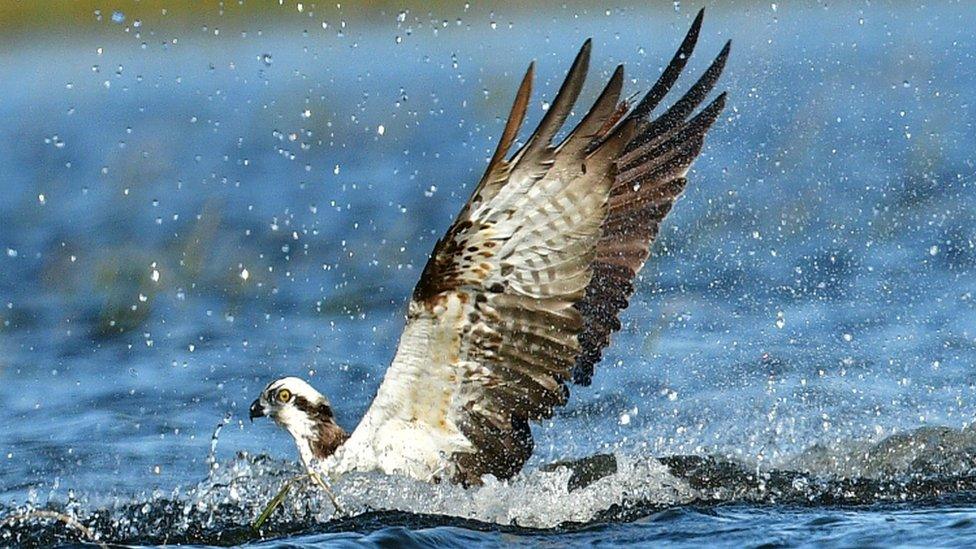Big Garden Birdwatch: Smallest birds 'hit by Beast from East'
- Published
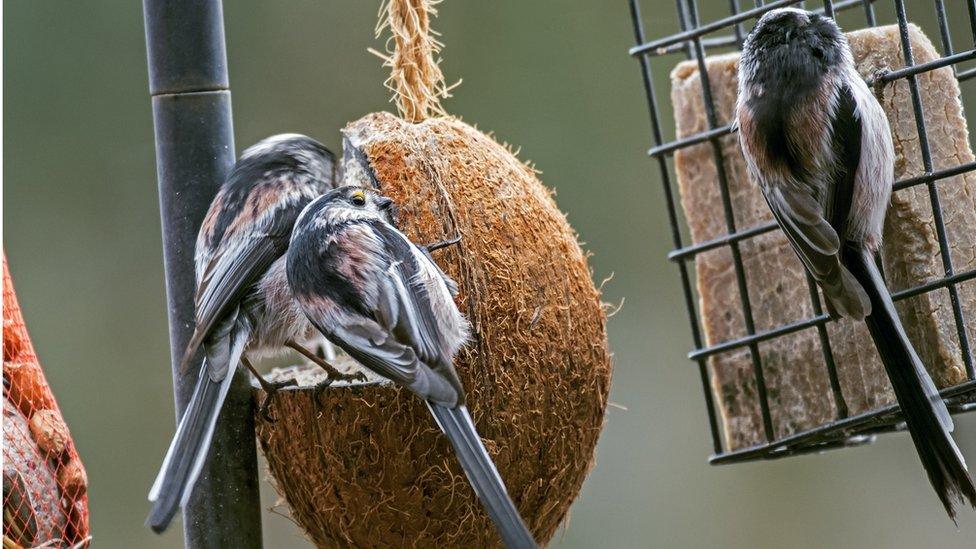
Sightings of long-tailed tits were down 27% on last year
Fewer of the UK's smallest birds have been spotted this year by volunteers in the Big Garden Birdwatch, an annual survey run by the RSPB.
Long-tailed tits were down by 27% and wrens by 17% after being seen in large numbers in 2018.
Last year's very cold spell brought by the Beast from the East is thought to be a factor, as smaller birds would have been hardest hit by the blast.
House sparrows, meanwhile, are making a comeback after years in decline.
Their fortunes appear to have turned after falling by more than a half (56%) since the Big Garden Birdwatch began 40 years ago.
In the last 10 years however, their numbers appear to have increased by 10%, suggesting at least a "partial recovery" is happening over time, experts said.
An RSPB spokesman said: "Over its long lifetime, the survey has shown the increasing good fortunes of birds such as the goldfinch and wood pigeon and the alarming declines of the house sparrow and starling.
"But there appears to be good news for one of these birds."
He said the figures for sparrows over the past decade gave experts hope that "at least a partial recovery may be happening".
Top three Big Garden Birdwatch birds
1. House sparrow: Cheerful exploiters of human rubbish who have managed to colonise most of the world.
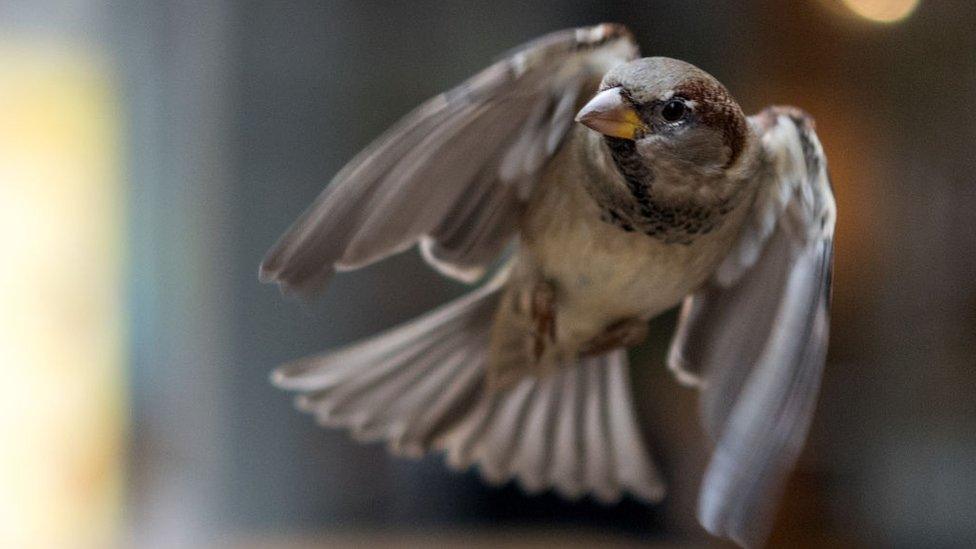
2. Starling: Looks black at a distance but is glossy with a purple and green sheen up close. Noisy and gregarious, its flight is fast and direct and it walks and runs confidently.
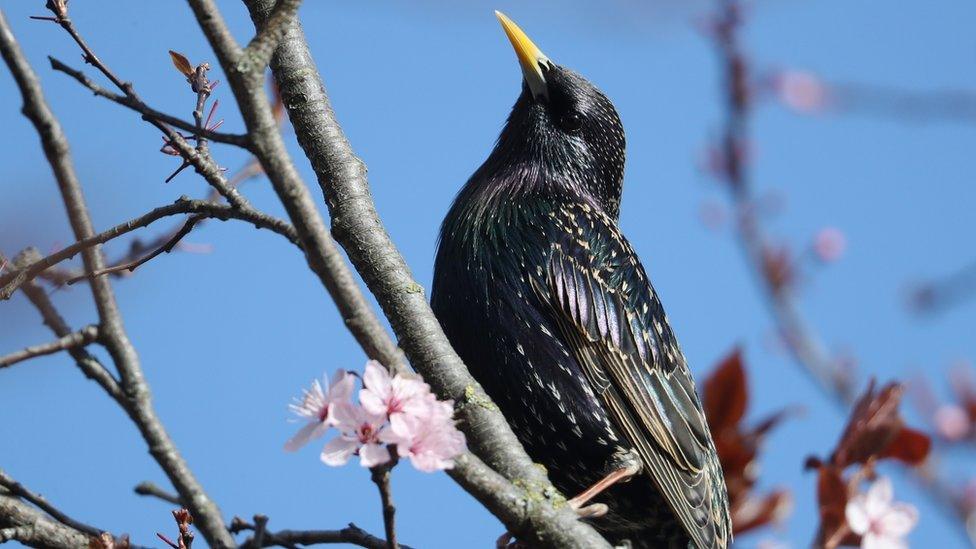
3. Blue tit: In winter, family flocks join other tits as they search for food. A garden with four or five blue tits at a feeder at any one time may be be feeding 20 or more.
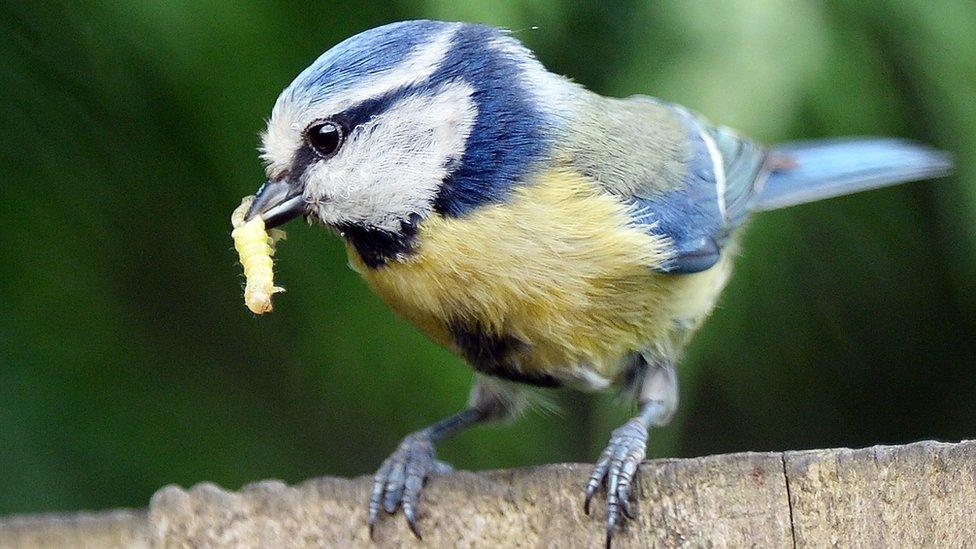
Every January, thousands of people across the UK spend an hour of their weekend watching the comings and goings in their garden or local park.
As well as birds, people were asked to look out for badgers, foxes, grey and red squirrels, muntjac deer, roe deer, frogs and toads.
Over the years, the survey has documented the boom in sightings of wood pigeons and long-tailed tits, as well as influxes of bramblings and waxwings.
This year, the charity is releasing a specially created track of birdsong called Let Nature Sing to coincide with the publication of the birdwatch findings.
RSPB director of conservation Martin Harper said: "Birds are such iconic parts of human culture but many of us no longer have the time or opportunity to enjoy them.
"Without nature, our lives are so less complete."
Allow X content?
This article contains content provided by X. We ask for your permission before anything is loaded, as they may be using cookies and other technologies. You may want to read X’s cookie policy, external and privacy policy, external before accepting. To view this content choose ‘accept and continue’.

The latest survey comes amid growing calls for stricter controls on netting over trees and hedgerows, intended to stop birds nesting.
Developers say the nets are "standard practice" on greenery that might be damaged by building work, but the RSPB says they should only be used in exceptional circumstances.
- Published3 April 2019
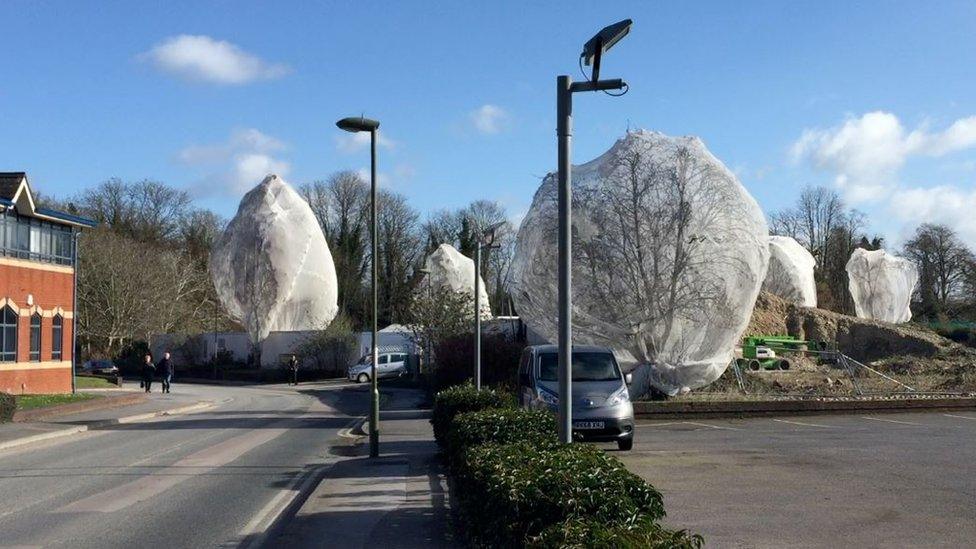
- Published23 March 2019

- Published14 January 2019
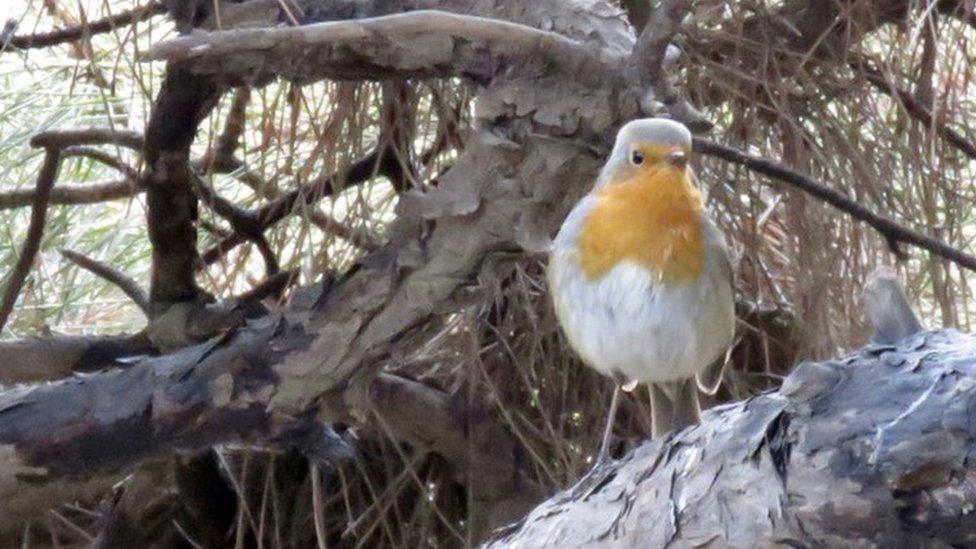
- Published21 January 2019
